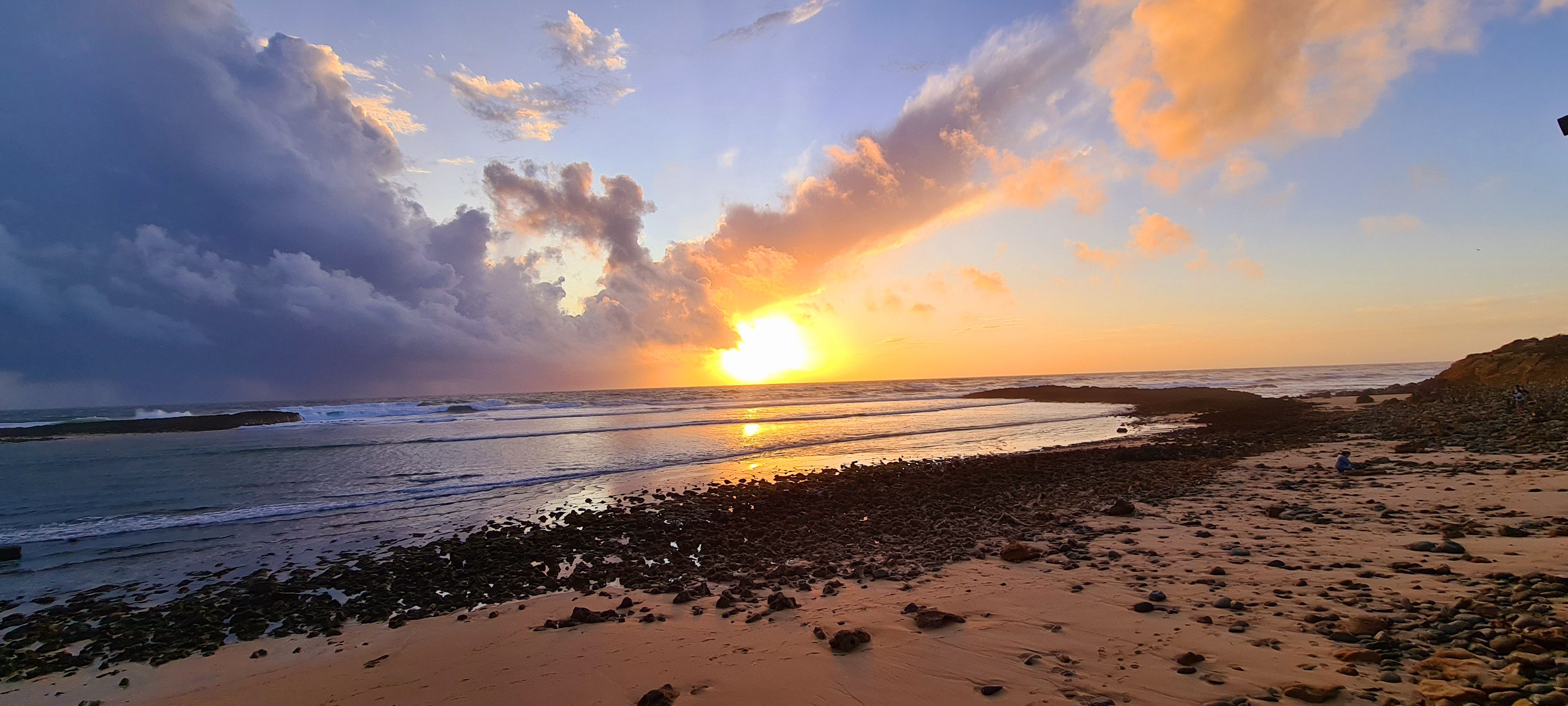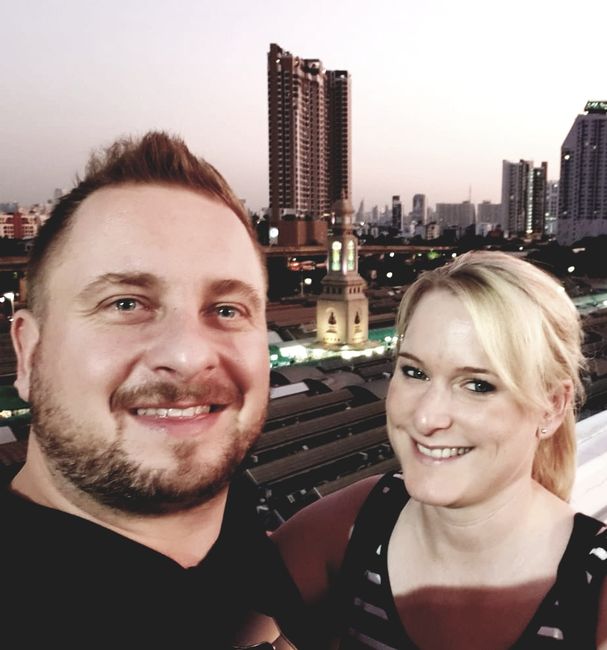
Portugal - Alles anders als geplant, aber auch gut...
vakantio.de/bankok-laos-kambodscha
Phnom Penh, or where is Cambodia actually located?
प्रकाशित: 05.12.2019
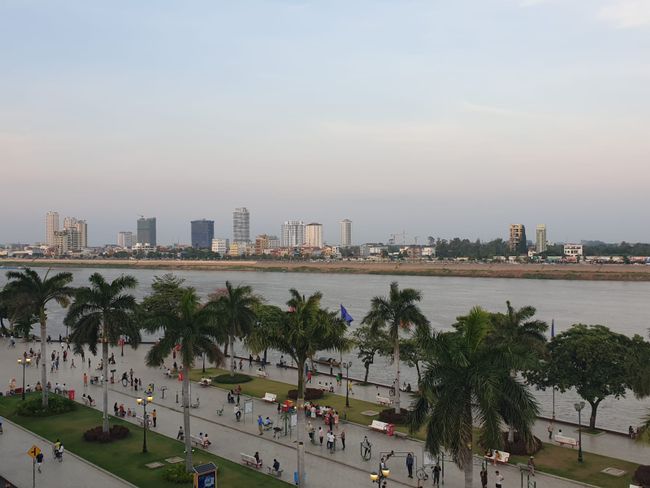
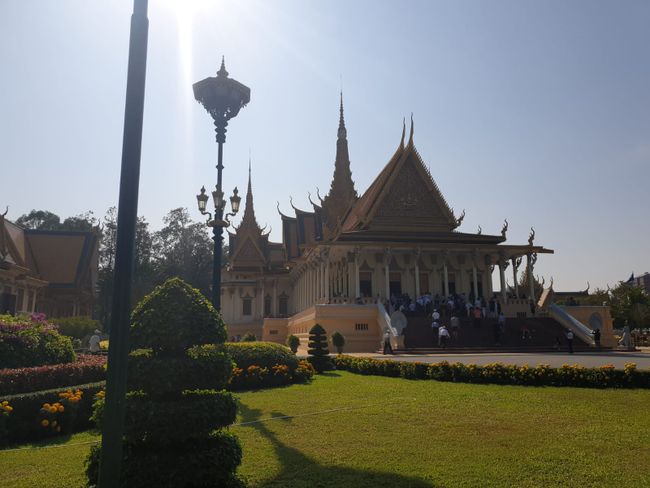
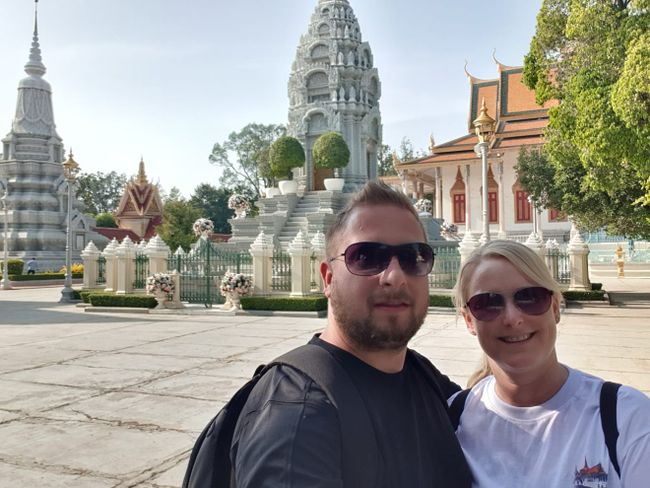
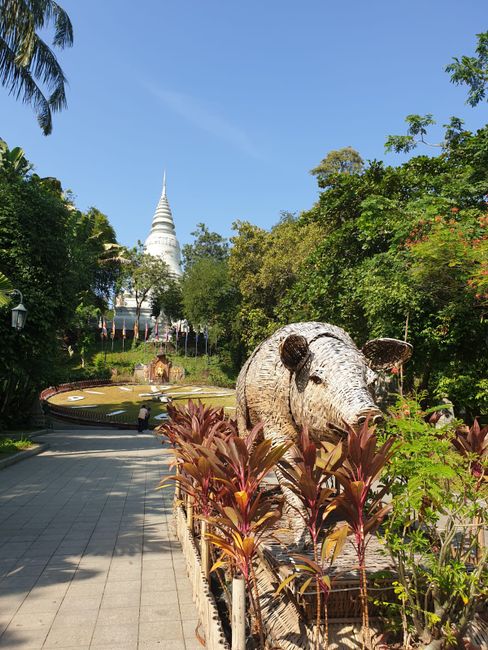
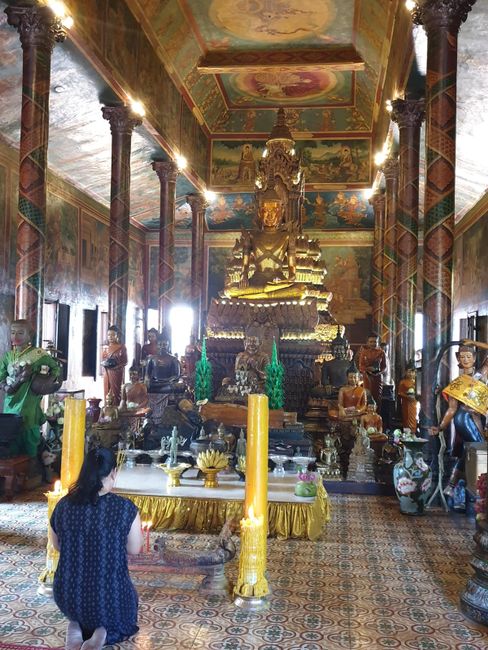
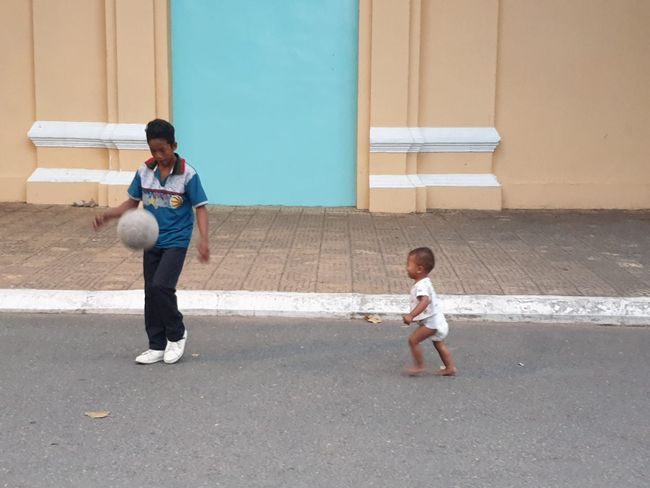
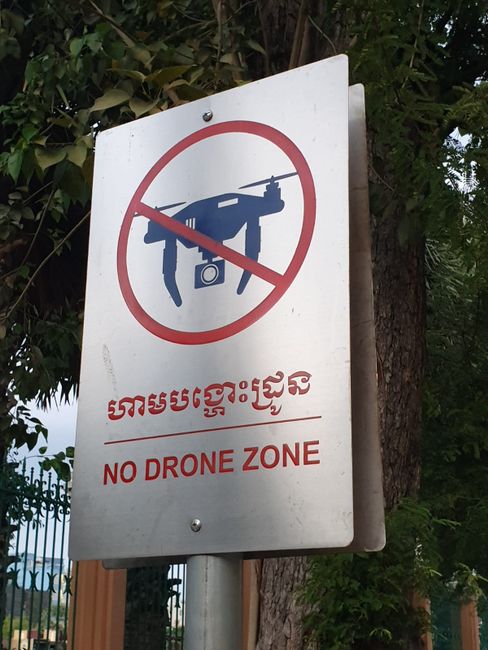
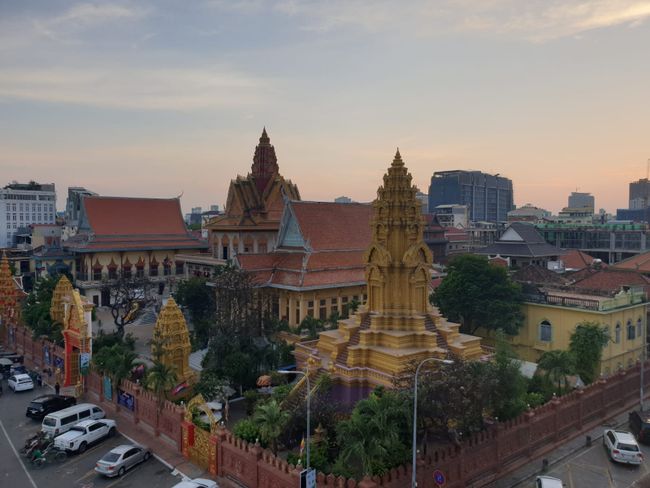
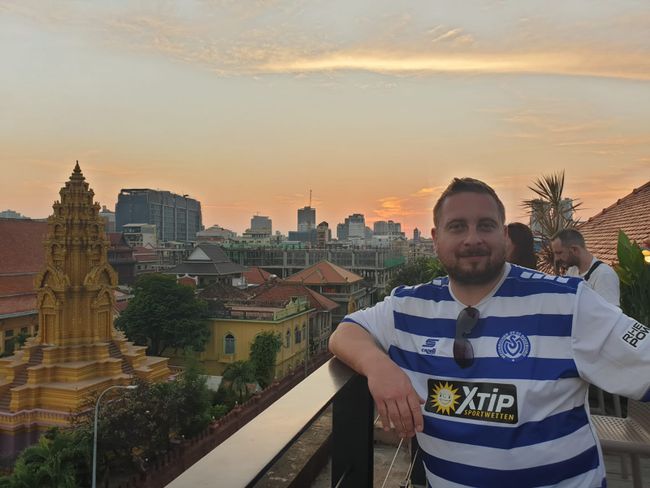
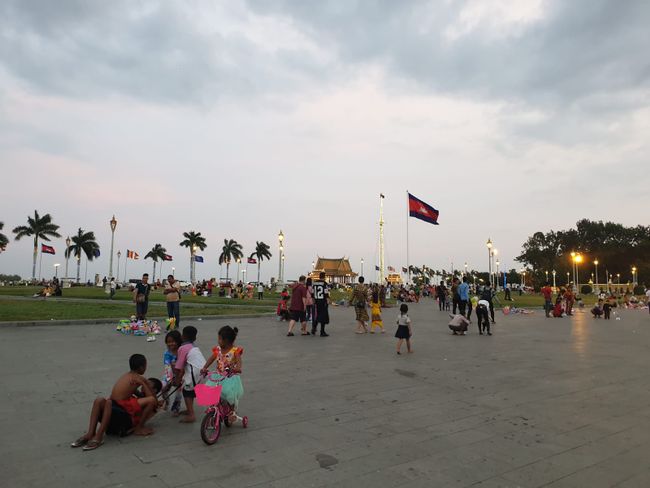
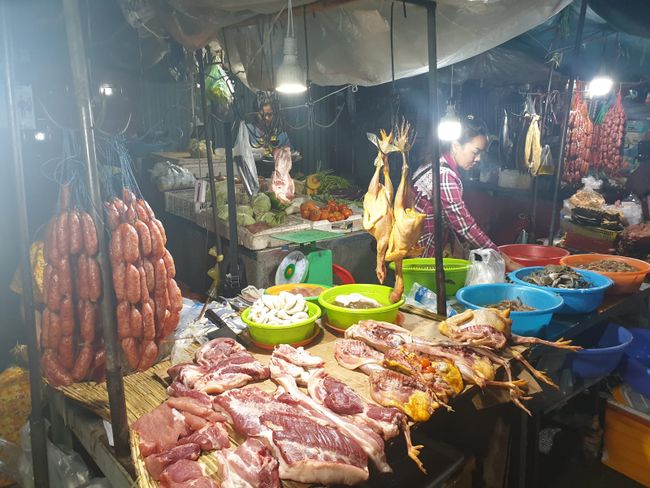
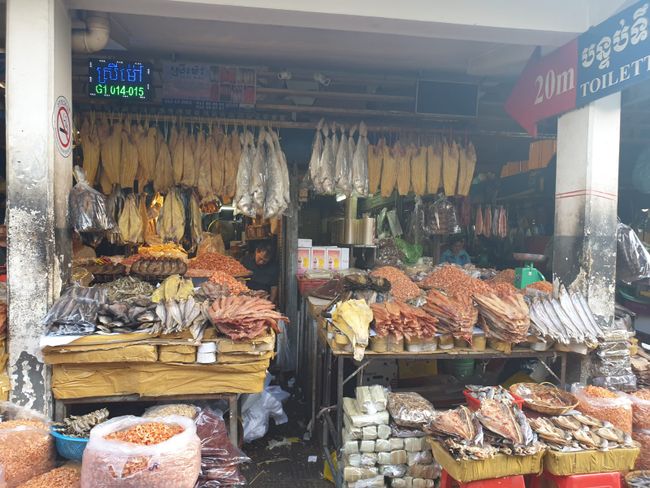
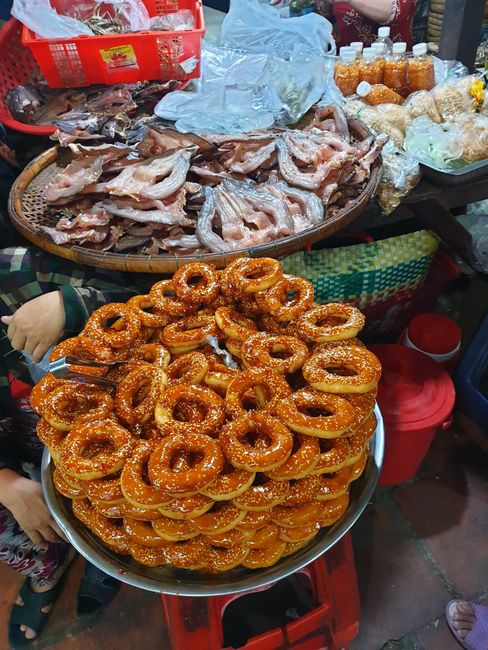
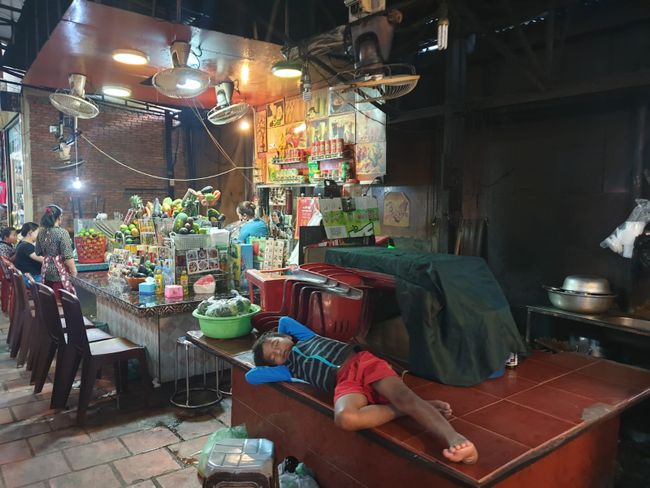
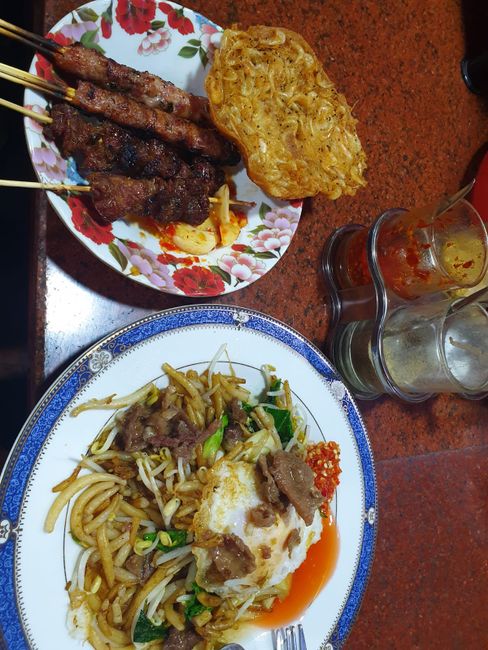
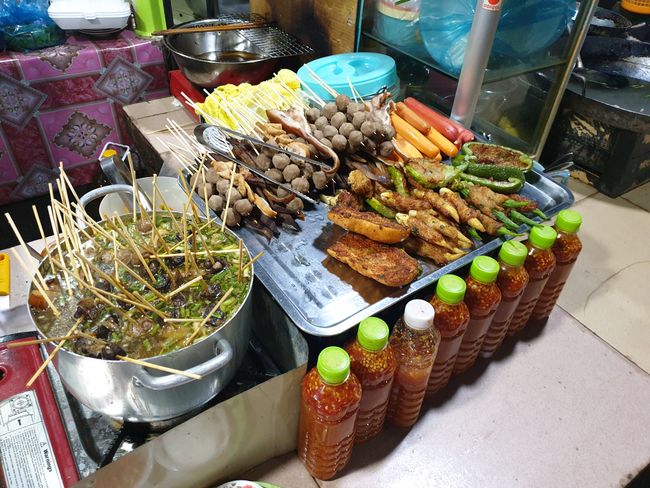
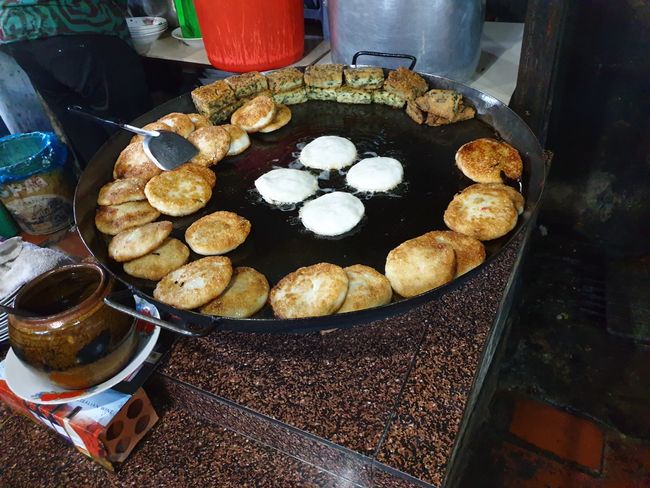
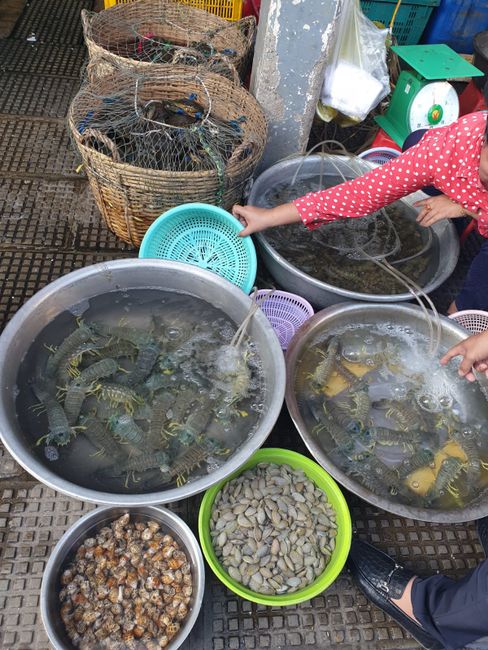
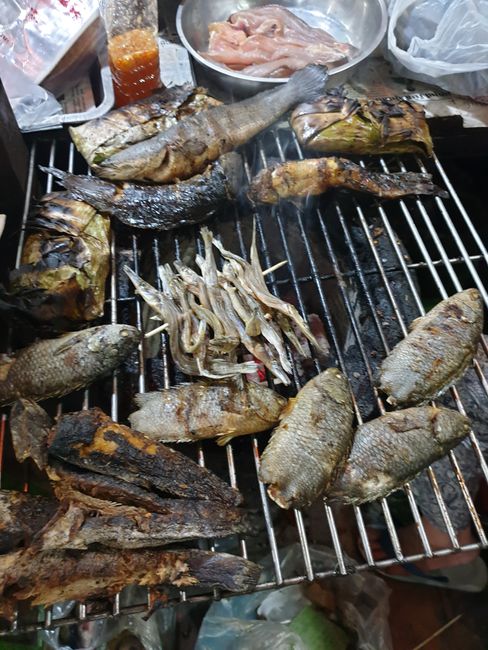
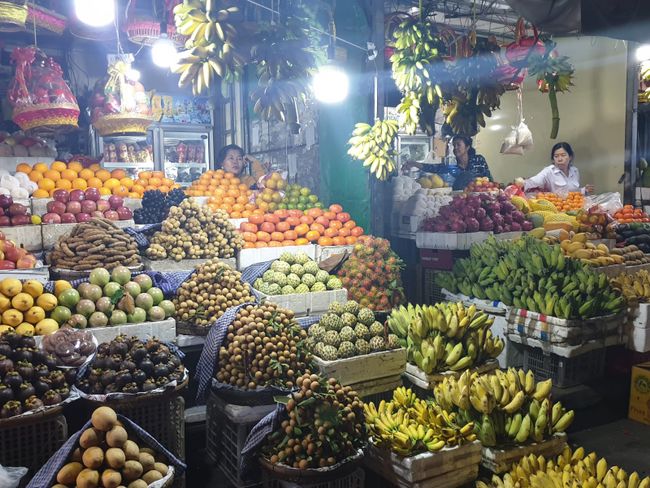
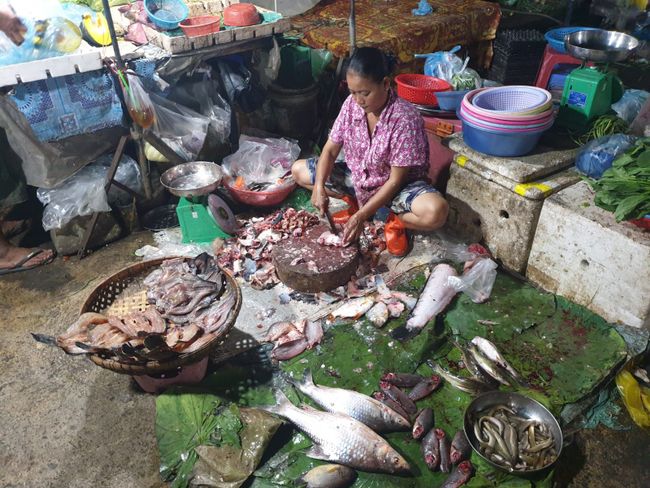
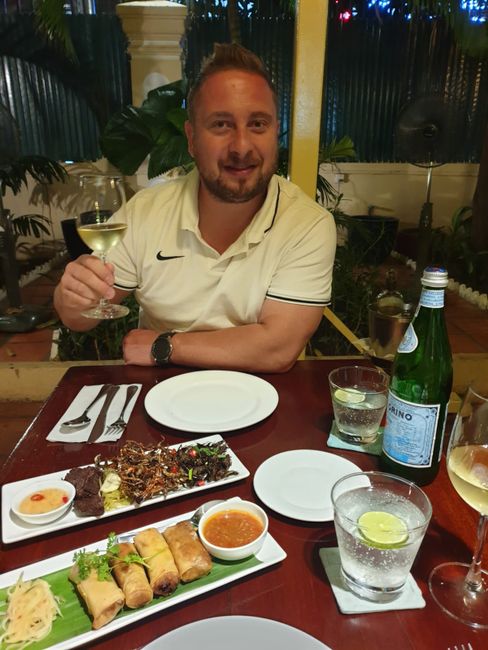
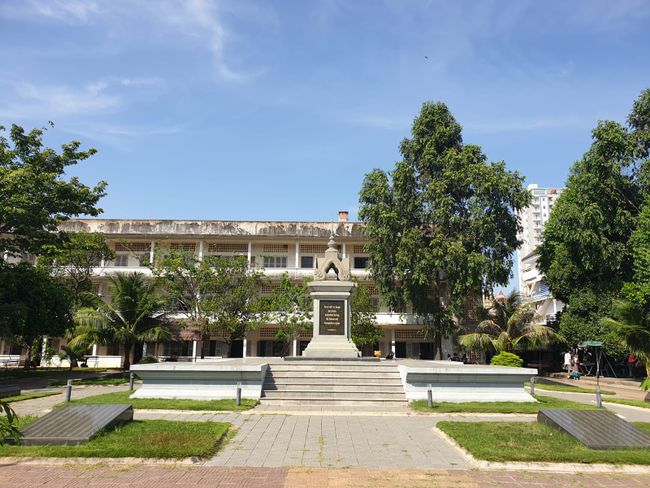
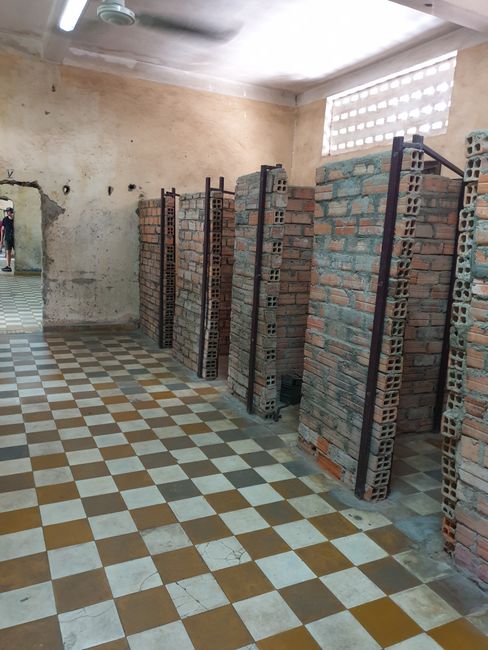
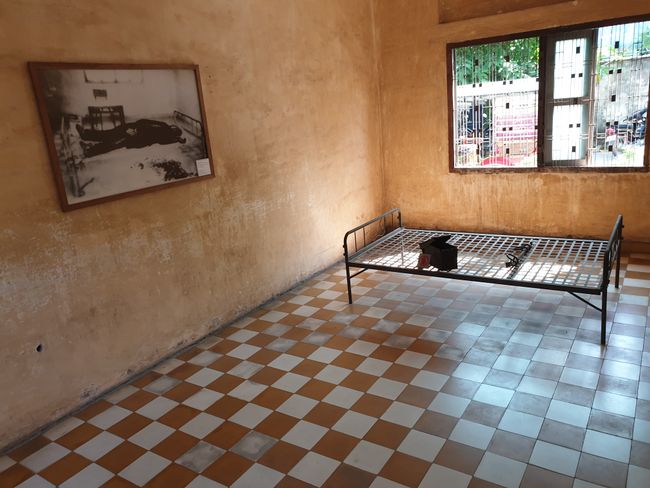
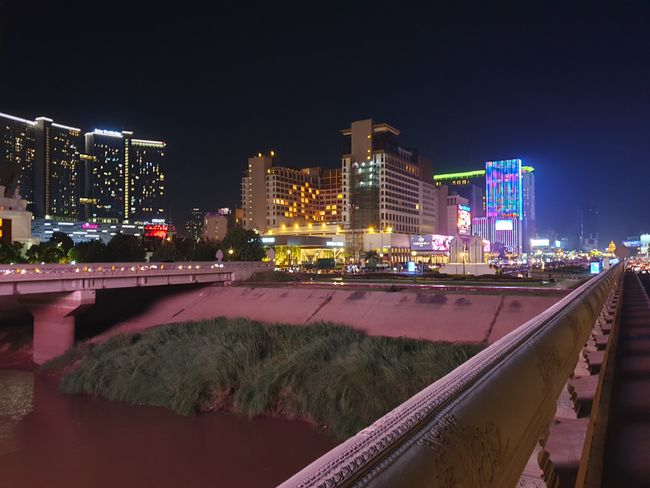
समाचार पत्रिका के लिए सदस्यता लें
Contrary to our original plan of traveling from Vientiane to Siem Reap and then to Phnom Penh, which would have been geographically more logical, we decided to fly to the Cambodian capital of Phnom Penh due to flight connections.
As you could probably already see from the pictures of Cambodian traffic, Phnom Penh is once again a proper metropolis with approximately 2 million inhabitants 🏙️! What you see on the streets here is a strangely divided city. At first glance, the metropolis is completely paved, but there are virtually no usable sidewalks. Either there are simply none, or they are completely blocked by parked SUVs. On 10 meters of street, we saw 8 tuk-tuks, 1 SUV, 21 scooters, and 5 pedestrians. So ultimately, you are constantly forced to walk on the extremely chaotic and overcrowded streets. The traffic rules here seem to be the same as in pedestrian zones. Because there are none. Everyone only looks out for not colliding with anyone (if possible or able). The streetscape is also characterized by makeshift sheds that look completely impoverished, where thousands of unprofessional small businesses have settled. These are assigned to the respective street sections according to their types of operation. In our street, for example, there were about 40 garage-sized scooter workshops where hundreds of "mechanics" sat on the floors and put things together. Elsewhere, there were hundreds of shady-looking bars or small supermarkets. On the other hand, houses are being demolished in hundreds of places here, and instead, there are construction sites everywhere for high-tech and almost billion-dollar futuristic skyscrapers or villas, as well as stylish bars and restaurants.
A very bizarre mixture, especially because the people we encountered here don't fit into these houses at all 🤷♂️. Poverty is ubiquitous. Especially when you see all the street food stalls, sometimes you just pass by despite being hungry. The sanitary conditions here seem to be quite different from those in Thailand or Laos 😖. Nowhere have we seen so many fat rats running through the streets, and cleaning or cooling facilities are not available at every stand 🙈. The same goes for the markets. In addition, the sellers or even the tuk-tuk drivers are very difficult to negotiate with 😉🤷🏼♀️. There is at least a solution with the Grab app for tuk-tuks (Backpack-Hack #4), and the price for a tuk-tuk here was always only about 50% of the negotiated amount 💪.
Despite the hygiene problems, we have also found something delicious here and there (without major stomach problems) 😋. The city has not only bad sides 😊. The development can already be seen in many places. For example, there is a beautiful river boulevard or the Silver Pagoda and the Royal Palace are not to be scoffed at either 😉.
We have already "discovered and visited" the reason for the poverty here, namely the Genocide Museum S21. About 40 years ago, the Khmer Rouge were in power in Cambodia. They wanted to establish a totalitarian agrarian state, so they expelled, tortured, and/or ultimately killed all intellectuals. According to estimates, this was about a quarter of the local population 😳. The scenario was very similar to that of the Nazi concentration camps, with the difference that it was not so long ago in 1979 and that wearing glasses or having soft hands was already considered suspiciously intellectual 🧐. When you look at this history and see that the prevailing civilization here is only 40 years old, you have to see Cambodia in a different light, namely as highly dynamic and thriving!
However, it is sad that in Germany, we are only aware of the dynamics, growth, and size of Cambodia, especially Phnom Penh, to a very small extent. Somehow, it is a blank spot on our maps, following the motto: What is Phnom Penh actually, and where is this Cambodia located?🙈
समाचार पत्रिका के लिए सदस्यता लें
उत्तर
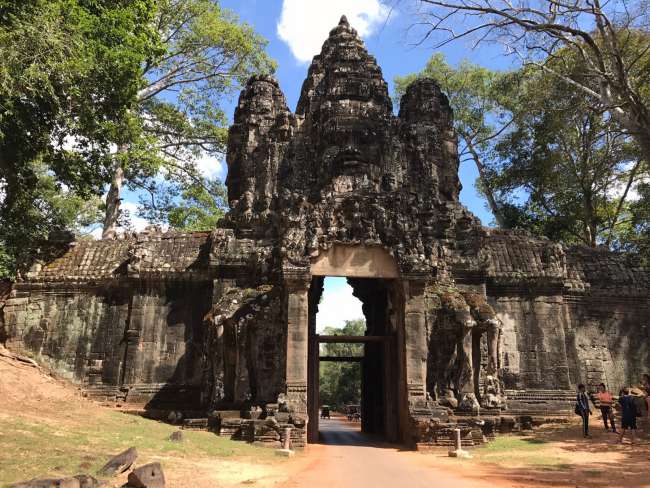
यात्रा रिपोर्ट कंबोडिया
